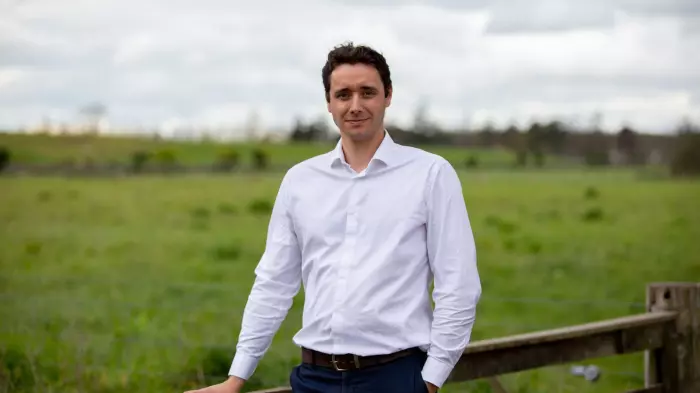When one third of the New Zealand workforce is aged 55 or older – are employers doing enough to help them prepare for retirement?
Some of the responsibility is being shifted away from the government and onto the individual and the employer. With a projected 21–26% of New Zealanders expected to be over 65 by 2048, the government is likely to struggle to fund its current superannuation obligations.
That shift was signalled in this year’s Budget, with employer KiwiSaver contributions rising to 4%, while government contributions were axed for high earners and halved for everyone else.
Retirement increasingly rests in our own hands, but employers have an important role to play, too. Kiwi organisations can make a powerful positive difference to their workers’ retirement outcomes, says Kristin Sutherland, a financial coach at enable.me and co-founder of Smart Retirement.
“Policies are putting more of the onus on employers, and I do think they have a responsibility to provide some information on retirement planning,” says Sutherland. “Starting the conversation can really make a difference, and any support is a great value-add for their staff.”
Making the most of KiwiSaver: contributions, funds and employee benefits
Employer contributions have a huge impact on KiwiSaver balances at retirement. Considering changes like moving to the 4% contribution rate early, or bumping it up to 5%, can have a huge positive effect on your employees.
In June, enable.me surveyed businesses to see how they are supporting their employees beyond a pay rise. Just 4% of the companies surveyed were contributing more than the legal minimum to KiwiSaver. If your organisation does contribute more than the minimum, Sutherland urges making sure your team knows about it and understands the long-term value.
“I think extra contributions do make staff think twice about leaving. They feel appreciated, and they think, ‘Maybe I’m not going to get these benefits elsewhere’,” says Sutherland. “For employers, if you’re going to pay over the odds, make a sales pitch of it. Educate your team and show them how much it adds up over time.”
 Kristin Sutherland, financial coach at enable.me and co-founder of Smart Retirement.
Kristin Sutherland, financial coach at enable.me and co-founder of Smart Retirement.
While employer KiwiSaver contributions aren’t mandatory for employees over 65, many businesses continue them. This is another excellent opportunity that companies often fail to promote, says Sutherland. Again, by demonstrating the long-term benefits with projections, your business can illustrate the long-term value to the team.
Organisations can also support employees by helping them choose an appropriate KiwiSaver fund. This might mean directing people to the Sorted KiwiSaver fund finder, or hosting a ‘lunch and learn’ with a financial adviser who covers the basics.
“My experience is that people are usually not in the right KiwiSaver fund. They’re normally in a more conservative fund than they need to be. If you can’t sleep at night with a higher risk option, that’s fine. Otherwise, if you’re more than 10 years from retirement and not using the money for a first home, you probably want to be as aggressive as you’re comfortable with,” Sutherland says. “It needs to perform well, and the right fund will make a big difference to your retirement savings.”
There are strategies your organisation can take to improve how you support staff in optimising their KiwiSaver.
You could put together an information pack, extra resources, or even offer a session with a financial adviser for employees turning 55, to make the most of their runway to retirement.
“We can do a lot in 10 years. After that the runway gets shorter and shorter. It’s much harder if you’ve left it until you’re 65,” Sutherland says.
Supporting choice in the work-to-retirement transition
It’s been a tough winter for Kiwi businesses, with a third of survey respondents indicating that extra staff benefits aren’t currently affordable. Sutherland emphasises that simply supporting workers to think about the future and start planning is surprisingly valuable. FSC research finds that 44% of New Zealanders feel prepared for retirement, down from 50% in 2024. Talking about retirement planning, testing scenarios and creating roadmaps all help people improve their preparedness.
“It’s about getting the person to plan: ‘What does your retirement look like? Is it part-time work, or consulting, or volunteering? What will you do with your time?’ The financial side of retirement is important, but it’s not everything. People also need to prepare psychologically for the end of work.”
It’s a topic close to Sutherland’s heart – after 40 years of work, her father collapsed on the first day of his retirement. The A&E nurse told the family that he was the fifth person she had seen that week who had just retired.
That moment sparked Sutherland’s passion for helping people psychologically plan for a smooth transition out of work. That pathway is highly individual, but employers can provide support by talking to senior team members about what shape their future work life might take. Around a quarter of Kiwis work beyond age 65, one of the highest rates in the world.
“Employers should be looking after workers at the end of their career, not just the beginning,” Sutherland says. “That support can establish a positive relationship, so if the employer still needs access to that person’s knowledge, the retiree might come back as a part-timer, a mentor, or a consultant. That’s much more positive than just saying, ‘See you later’.”
- Find out how enable.me is helping Kiwi employers support retirement readiness at moneyfit.me.






